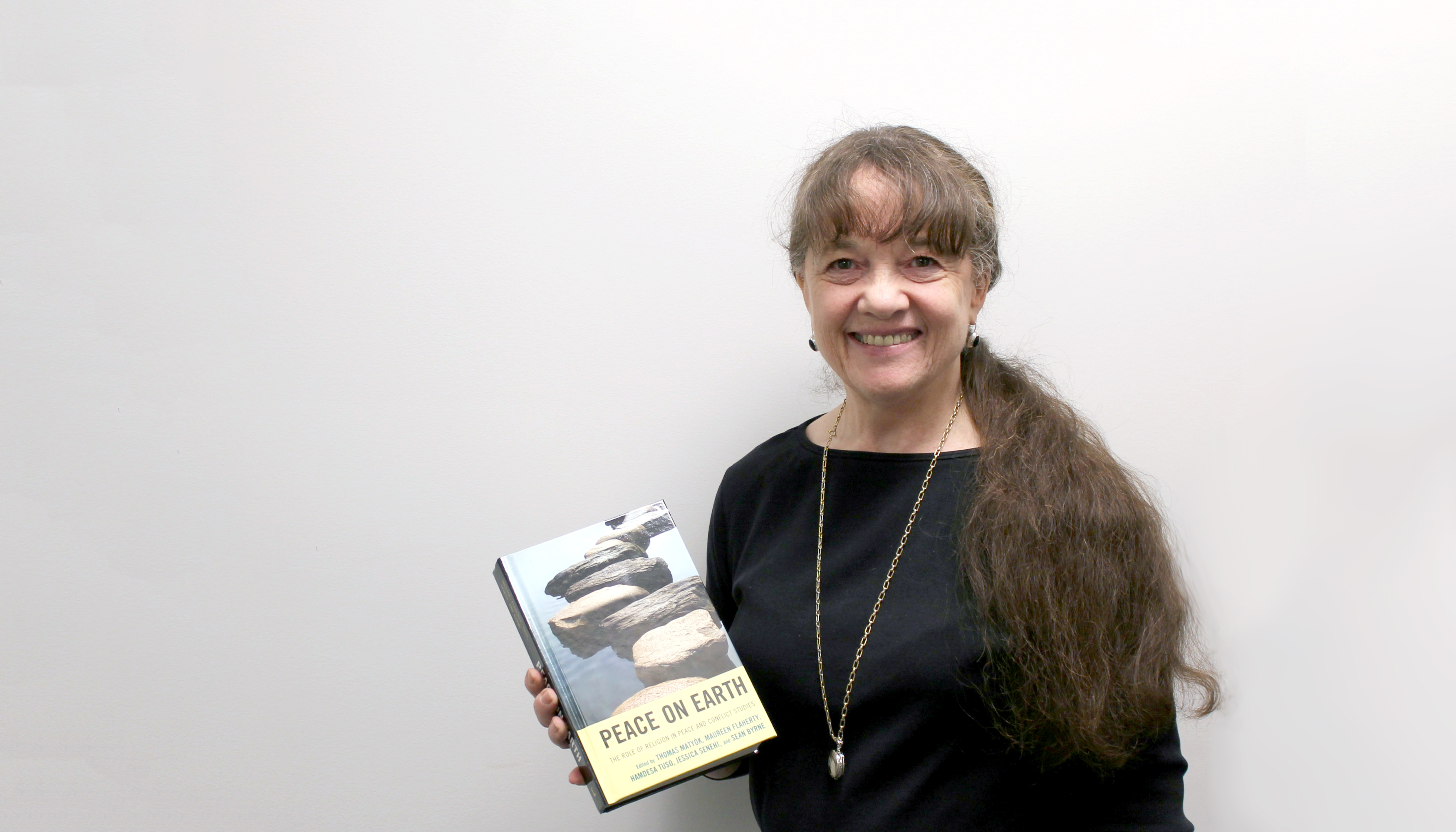
New book explores role of religion in peace and conflict

Anabaptist-Mennonite pacifist thinking and practice is presented as one way forward in the newly published book Peace on Earth: The Role of Religion in Peace and Conflict Studies.
The book addresses the question of whether religion can be constructive in conflict, says Dr. Lois Edmund, author of the chapter “Peace on Earth: The Anabaptist-Mennonite Perspective."
For a relatively small group, Anabaptists are pervasive in working in the areas of peace and social justice, explains Dr. Edmund, Associate Professor of Conflict Resolution Studies at Menno Simons College (MSC).
“Anabaptists have been influential in invisible ways in the area of scholarship,” she says. Articles on pacifism have “spread far beyond Mennonite groups and spread to other groups, crystallizing other theologies.”
As an Anabaptist peacemaker, Dr. Edmund is familiar with the history and concept of pacifism. Still, her research uncovered stories of failure and controversy when people’s sons went to war or didn’t achieve conscientious objector status.
“The positive of these situations was that it spurred more thinking and research on the topic and spurred a more serious approach to conscientious objection,” says Dr. Edmund.
Former MSC Conflict Resolution Studies instructors, Dr. Christopher Hrynkow, Dr. Paul Cormier, and Dr. Ismael Muvingi made contributions to the book as well.
“The book will be an interesting resource for instructors because it looks at so many different religions,” says Dr. Edmund.
Ellen Paulley is the Writer and Social Media Coordinator for Menno Simons College
Peace on Earth: The Role of Religion in Peace and Conflict Studies is available to be previewed and purchased on Google Books.




